!['...[nothing] could deter Oswald from raising her hand to his lips, and pressing a fervent kiss upon it.'](Venetia/handkiss.jpg)
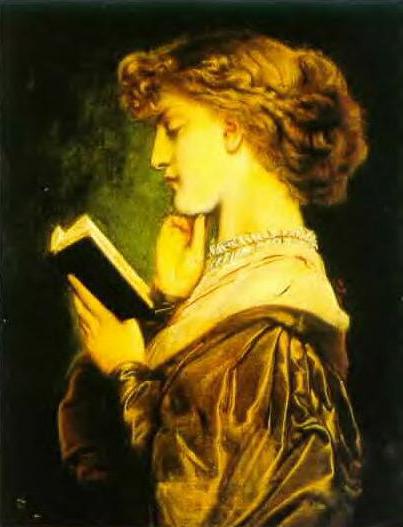
"A fox got in amongst the hens last night, and ravished our best layer," remarked Miss Lanyon. "A great-grandmother, too! You'd think he would be ashamed!" Receiving no answer, she continued, in an altered voice: "Indeed, you would! It is a great deal too bad. What is to be done?"
His attention caught, her companion raised his eyes from the book which lay open beside him on the table and directed them upon her with a look of aloof enquiry. "What's that? Did you say something to me, Venetia?"
"Yes, love," responded his sister cheerfully, "but it wasn't of the least consequence, and in any event I answered for you. You would be astonished, I daresay, if you knew what interesting conversations I enjoy with myself."
"I was reading."
"So you were -- and have let your coffee grow cold, besides abandoning that slice of bread-and-butter. Do eat it up! I'm persuaded I ought not to permit you to read at table."
"Oh, the breakfast-table!" he said disparagingly. "Try if you can stop me!"
"I can't, of course. What is it?" she returned, glancing at the volume. "Ah, Greek! Some improving tale, I don't doubt."
"The Medea," he said repressively. "Porson's edition, which Mr Appersett lent to me."
"I know! She was the delightful creature who cut up her brother, and cast the pieces in her papa's way, wasn't she? I daresay perfectly amiable when one came to know her."
He hunched an impatient shoulder, and replied contemptuously: "You don't understand, and it's a waste of time to try to make you."
Her eyes twinkled at him. "But I promise you I do! Yes, and sympathise with her, besides wishing I had her resolution! Though I think I should rather have buried your remains tidily in the garden, my dear!"
This sally drew a grin from him, but he merely said, before turning back to his book, that to order her to do so would certainly have been all the need their parent would have paid.
Inured to his habits, his sister made no further attempt to engage his attention. The slice of bread-and-butter, which was all the food he would accept this morning, lay half-eaten on his plate, but to expostulate would be a waste of time, and to venture on an enquiry about the state of his health would serve only to set up his hackles.
He was a thin boy, rather undersized, by no means ill-looking, but with a countenance sharpened and lined beyond his years. A stranger would have found these hard to computer, his body's immaturity being oddly belied by his face and his manners. In point of fact he had not long entered on his seventeenth year, but physical suffering had dug the lines in his face, and association with none but his seniors, coupled with an intellect at once scholarly and powerful, had made him precocious. A disease of the hip-joint had kept him away from Eton, where his brother Conway, his senior by six years, had been educated, and this (or, as his sister sometimes thought, the various treatments to which he had been subjected) had resulted in a shortening of one leg. When he walked it was with a pronouned and ugly limp; and although the disease was said to have been arrested the joint still pained him in inclement weather, or when he had over-exerted himself. Such sports as his brother delighted in were denied him, but he was a gallant rider, and a fair shot, and only he knew, and Venetia guessed, how bitterly he loathed his infirmity.
A boyhood of enforced physical inertia had strengthened a natural turn for scholarship. By the time he was fourteen if he had not outstripped his tutor in learning he had done so in understanding; an dit was recognised by that worthy man that more advancec coaching than he felt himself able to supply was needed. Fortunately, the means of obtaining it were at hand. The incumbent of the parish was a notable scholar, and had for long observed with a sort of wistful delight Aubrey Lanyon's progress. He offered to prepare the boy for Cambridge; Sir Francis Lanyon, relieved to be spared the necessity of admitting a new tutor into his household, acquiesced in the arrangement; and Aubrey, by that time able to bestride a horse, thereafter spent the better part of his days at the Parsonage, poring over texts in the Reverend Julius Appersett's dim bookroom, eagerly absorbing his preceptor's wide lore, and filling him with an ever-increasing belief in his ability to excel. He was entered already at Trinity College, where he would be admitted at Michaelmas in the following year; and Mr Appersett had little doubt that young thoug he would still be he would very soon be elected a scholar.
Neither his siser nor his elder brother cherished doubts on this head. Venetia knew his intellect to be superior; and Conway, himself a splendidly robust young sportsman to whom the writing of a letter was an intolerable labour, regarded him with as much awe as compassion. To win a Fellowship seemed to Conway a strange ambition, but he sincerely hoped Aubrey would achieve it, for what else (he once said to Venetia) could the poor little lad do but stick to his books?
For her part, Venetia thought he stuck too closely to them, and was showing at an alarmingly early age every sign of becoming just such an obstinate recluse as their father had been. He was supposed, at the moment, to be enjoying a holiday, for Mr Appersett was in Bath, recuperating from a severe illness, a cousin, with whom he had fortunately been able to exchange, performing his duties for him. Any other boy would have thrust his books on to a shelf and equipped himself instead with his rod. Aubrey brought books even to the breakfast-table, and let his coffee grow cold while he sat propping his head, delicate brow on his hand, his eyes bent on the printed page, his brain somuch concentrated on what he read that one might speak his name a dozen times and still win no response. It did not occur to him that such absorption made him a poor companion. It occurred forcibly to Venetia, but since she had long since recognised that he was quite as selfish as his father or his brother she was able to accept his odd ways with perfect equanimity, and to go on holding him in affection without suffering any of the pangs of disillusionment.
She was nine years his senior, the eldest of the three surviving children of a Yorkshire landowner of long lineage, comfortable fortune, and eccentric habits. The loss of his wife before Aubrey was out of short coats had caused Sir Francis to immure himself in the fastness of his manor, some fifteen miles from York, and to remain there, sublimely indifferent to the welfare of his offspring, abjuring the society of his fellows. Venetia could only suppose that the trend of his nature must always have been towards solitude, for she was quite unable to believe that such extravagant conduct had arisen from a broken heart. Sir Francis had been a man of rigid pride, but never one of sensibility, and that his marriage had been one of unmixed bliss was an amiable fiction his clear-sighted daughter was quite unable to believe. Her memories of her mother were vague, but they included the echoes of bitter quarrels, slammed doors, and painful fits of hysteria. She could remember being admited to her mother's scented bed-chamber to see her dressed for a ball at Castle Howard; she could remember a beautiful discontented face; a welter of expensive dresses; a French maid; but not one recollection could she summon up of maternal concern or affection. It was certain that Lady Lanyon had not shared her husband's love of country life. Every spring had seen the ill-assorted pair in London; early summer took them to Brighton; when they returned to Undershaw it was not long before her ladyship became moped; and when winter closed down on Yorkshire she was unable to support the rigours of the climate, and was off with her reluctant spouse to visit friends. No one could think that such a butterfly's existence suited Sir Francis, yet when a sudden illness had carried her off he had come home a stricken man, unable to bear the sight of her portrait on the way, or to hear her name mentioned.
His children grew up in the desert of his creating, only Conway, sent to Eton, and passing thence into the -th Foot, escaping into a larger world. Neither Venetia nor Aubrey had been farther from Undershaw than Scarborough, and hteir acquantance was liited to the ew families living within reach of the Manor. Neither repined, Aubrey because he shrank from going amongst strangers, Venetia because it was not in her nature to do so. She had only once been disconsolate: that was when she was seventeen, and Sir Francis had refused to let her go to his sister, in London, to be presented, and brought out in Society. It had seemed hard, and some tears had been shed. However, a very little reflection had sufficed to convince her that the scheme was really quite impractical. She could not leave Aubrey, a sickly eight-year-old, to Nurse's sole care: that excellent creature's devotion would have driven him into a madhouse. So she had dried her eyes, and made the best of things. Papa, after all, was not unreasonable: though he would not consent to a London Season he raised no objection to her attending the Assemblies in York, or even in Harrogate, whenever Lady Denny, or Mrs Yardley, invited her to go with them, which they quite frequently did, the one from kindness, the other under compulsion from her determined son. Nor was Papa at all mean: he never questioned her household expenditure, bestowed a handsome allowance on her, and, somewhat to her surprise, left her, at his death, a very respectable competence.
This event had occurred three years previously, within a month of the glorious victory at Waterloo, and quite unexpectedly, of a fatal stroke. It had been a shock to his children, but not a grief. "In fact," said Venetia, scandalising kind Lady Denny, "we go on very much better without him."
"My dear!" gasped her ladyship, who had come to the Manor prepared to clasp the orphans to her sentimental bosom. "You are overwrought!"
"Indeed I'm not!" Venetia replied, laughing. "Why, ma'am, how many times have you declared him to have been the most unnatural parent?"
"But he's dead, Venetia!"
"Yes, but I don't suppose he has any more fondness for us now than he had when he was alive, ma'am. He never made the least push to engage our affections, you know, so he really cannot expect us to grieve for him."
Finding this unanswerable Lady Denny merely begged her not to say such things, and made haste to ask what she now meant to do. Venetia had said that it all depended on Conway. Until he came home to take up his inheritance there was nothing she could do but continue in the old way. "Except, of course, that I shall now be able to entertain our friends at the Manor, which will be very much more comfortable than it was when Papa would allow none but Edward Yardley and Dr Benworth to cross the threshold."
Three years later Venetia was still awaiting Conway's return, and Lady Denny had almost ceased to inveigh against his selfishness in leaving the burden of his affairs on her shoulders. No one had been surprised that he had at first found it impossible to return to England, for no doubt everything must have been at sixes and sevens in Belgium and France, and all our regiments sadly depleted after so sanguinary a battle as Waterloo. But as the months slid by, and all the news that was to be had of Conway came in a brief scrawl to his sister assuring her that he had every confidence in her ability to do just as she ought at Undershaw, and would write to her again when he had more time to devote to the task, it began to be generally felt that his continued absence arose less from a sense of duty than from reluctance to abandon a life that seemed (from accounts gleaned from visitors to the Army of Occupation) to consist largely of cricket-matches and balls. When last heard of, Conway had had the good fortune to be appointed to Lord Hill's staff, and was stationed at Cambray. He had been unable to write at much length to Venetia because the Great Man was expected, and there was to be a Review, followed by a dinner-party, which meant that the staff was kept busy. He knew she would understand exactly how it was, and he remained her affectionate brother Conway. P.S. I don't know which field you mean -- you had better do what Powick thinks right.
"And for anything he cares she may live all her days at Undershaw, and die an old maid!" tearfully declared Lady Denny.
"She is more likely to marry Edward Yardley," responded her lord prosaically.
"I have nothing to say against Edward Yardley -- indeed, I believe him to be a truly estimable person! -- but I have always said, and I always shall say, that it would be throwing herself away! If only our own dear Oswald were ten years older, Sir John!" But here the conversation took an abrupt turn, Sir John's evil genius prompting him to exclaim that he hoped such a fine-looking girl had more sense than to look twice at the silliest puppy in the country. As he added a rider to the effect that it was high time his wife stopped encouraging Oswald to make a cake of himself with his play-acting ways, Venetia was forgotten in a pretty spirited exchange of conflicting opinions.
None would have denied that Venetia was a fine-looking girl; most would not have hesitated to call her beautiful. Amongst the pick of debutantes at Almack's she must have attracted attention; in the more restricted society in which she dwelt she was a non-pareil. It was no only the size and brilliance of her eyes which excited admiration, or the glory of her shining guinea-gold hair, or even the enchanting arch of her pretty mouth: there was something very taking in her face which owed nothing to the excellence of her features: an expression of sweetness, a sparkle of irrepressible fun, an unusually open look, quite devoid of selfconsciousness.
The humorous gleam sprang to her eyes as she glanced at Aubrey, still lost in antiquity. She said: "Aubrey! Dear, odious Aubrey! Do lend me your ears! Just one of your ears, love!"
He looked up, an answering gleam in his own eyes. "Not if it is something I particularly dislike!"
"No, I promise you it isn't!" she replied, laughing. "Only, if you mean to ride out presently will you be so very obliging as to call at the Receiving Office, and enquire if there has been a parcel delivered there for me from York? Quite a small parcel, dear Aubrey! not in the least unwieldy, upon my honour!"
"Yes, I'll do that -- if it's not fish! If it is, you may send Puxton for it, m'dear."
"No, it's muslin -- unexceptionable!"
He had risen, and walked over to the window with his awkward, dragging step. "It's too hot to go out at all, I think, but I will -- Oh, I most certainly will, and at once! M'dear, both your suitors are come to pay us a morning-visit!"
"Oh, no!" exclaimed Venetia imploringly. "Not again!"
"Riding up the avenue," he assured her. "Oswald is looking as sulky as a bear, too."
"Now, Aubrey, pray don't say so! It is his gloomy look. He is brooding over nameless crimes, I daresay, and only think how disheartening to have his dark thoughts mistaken for a fit of the sulks!"
"What nameless crimes?"
"My dear, how should I know -- or he either? Poor boy! it is all Byron's fault! Oswald can't decide whether it is his lordship whom he resembles or his lordship's Corsair. In either event it is very disturbing for poor Lady Denny. She is persuaded he is suffering from a disorder of the blood, and has been begging him to take James's Powders.
"Byron!" Aubrey ejaculated, with one of his impatient shrugs. "I don't know how you can read such stuff!"
"Of course you don't, love -- and I must own I wish Oswald had found himself unable to do so. I wonder what excuse Edward will offer us for this visit? Surely there cannot have been another Royal marriage, or General Election?"
"Or that he should think we care for such trash." Aubrey turned away from the window. "Are you going to marry him?" he asked.
"No -- oh, I don't know! I am sure he would be a kind husband, but try as I will I can't hold him in anything but esteem," she replied, in a comically despairing tone.
"Why do you try?"
"Well, I must marry someone, you know! Conway will certainly do so, and then what is to become of me? It wouldn't suit me to continue living here, dwindling into an aunt -- and I daresay it wouldn't suit my unknown sister either!"
"Oh, you may live with me! I shan't be married, and I shouldn't at all object to it: you never trouble me!"
Her eyes danced, but she assured him gravely that she was very much obliged to him.
"You would like it better than to be married to Edward."
"Poor Edward! Do you dislike him so much?"
He replied, with a twisted smile: "I never forget, when he's with us, that I'm a cripple, m'dear."
A voice was heard to say, beyond the door: "In the breakfast-parlour, are they? Oh, you need not announce me: I know my way!"
Aubrey added: "And I dislike his knowing his way!"
"So do I, indeed! There is no escape!" she agreed, turning to greet the visitors.
Two gentlemen of marked dissimilarity came into the room, the elder, a solid-looking man in his thirtieth year, leading the way, as one who did not doubt his welcome; the younger, a youth of nineteen, with a want of assurance imperfectly concealed by a slight, nonchalant swagger.
"Good-morning, Venetia! Well, Aubrey!" said Mr Edward Yardley, shaking hands. "What a pair of slugabeds, to be sure! I was afraid I shouldn't find you in on such a day, but came on the chance that Aubrey might care to try his luck with the carp in my lake. What do you say, Aubrey? You may fish from the boat, you know, and not suffer any fatigue."
"Thank you, but I shouldn't expect to get a rise in such weather.
"It would do you good, however, and you may drive your gig to within only a few yards of the lake, you know."
It was kindly said, but there was a suggestion of gritted teeth in Aubrey's reiterated refusal. Mr Yardley noticed this, and supposed, compassionately, that his hip was paining him.
Meanwhile, young Mr Denny was informing his hostess, rather more impressively than the occasion seemed to warrant, that he had come to see her. He added, in a low, vibrant voice, that he could not keep away. He then scowled at Aubrey, who was looking at him with derision in his eyes, and relapsed into blushful silence. He was nearly three years older than Aubrey, and had seen much more of the world, but Aubrey could always put him out of countenance, as much by his dispassionate gaze as by the use of his adder's tongue. He could not be at ease in the boy's presence, for besides being no match for him in a battle of wits he had a healthy young animal's dislike of physical deformity, and considered, moreover, that Aubrey traded on this in a very shabby way. But for that halting left leg he could have been speedily taught what civility was due to his elders. He knows himself to be safe from me, thought Oswald, and curled his lip.
Upon being invited to sit down he had assumed a careless pose upon a small sofa. He now found that his fellow-guest was steadfastly regarding him, and with unmistakable reprobation, and he was at once torn between hope that he presented a romantic figure and fear that he had a trifle overdone the nonchalant attitude. He sat up, and Edward Yardley transferred his gaze to Venetia's face.
Mr Yardley, with no wish to appear romantic, would never have been guilty of lounging in a lady's presence. Nor would he have been paid a morning-visit dressed in a shooting-jacket, and with a silk handkerchief knotted round his throat, its ends untidily worn outside his coat. He was dressed with neatness and propriety in a sober riding-coat and buckskins, and so far from training a lock of hair to droop over one brow he wore his hair rather closer cropped than was fashionable. He might have served as a model for a country gentleman of solid worth and modest ambition; certainly no stranger would have guessed that it was he, and not Oswald, who was the only child of a doting and widowed mother.
His father having died before Edward had reached his tenth birthday he had at a very early age come into the possession of his fortune. This was respectable rather than handsome, large enough to enable a prudent man to command the elegancies of life and still contrive to be beforehand with the world. A sprig of fashion, bent on cutting a dash, would have thought it penury, but Edward had no extravagant tastes. His estate, which was situated rather less than ten miles from Undershaw, was neither so extensive nor so important as Undershaw, but it was generally considered to be a snug property, and conferred upon its owner the acknowledged standing in the North Riding which was the summit of his ambition. Of a naturally serious disposition he was also endowed with a strong sense of duty. Frustrating all the efforts of his mama to ruin his character by excessive indulgence he early assumed the conduct of his affairs, and rapidly grew into a grave young man of uniform virtues. If he had neither liveliness nor wit he had a great deal of commonsense; and if his masterful nature made him rather too autocratic in his household his firm rule over his mama and his dependents was always actuated by a sincere belief in his ability to decide what would be best for them to do on all occasions.
Venetia, fearing that it behoved her to atone for Aubrey's scant civility, said: "How kind in you to have thought of Aubrey! But you shouldn't have put yourself to so much trouble: I daresay you must have a thousand things to do."
"Not quite a thousand," he responded, smiling. "Not even a hundred, though in general I am pretty busy, I own. But you must not suppose me to be neglecting any urgent duty: I hope I needn't charge myself with that! What was pressing I was able to attend to when you, I'll wager, were still asleep. With a little management one can always find time, you know. I have another reason for coming to see you, too: I've brought you my copy of Tuesday's Morning Post, which I believe you will be glad to have. I have marked the passage: you will see that it is concerned with the Army of Occupation. It seems certain that the feeling of the French against our soldiers' continuing there is growing very strong. One cannot wonder at it, though when one remembers -- however, that is of less interest to you than the prospect of welcoming Conway home! I believe you may have him with you before the year is out."
Venetia took the newspaper, thanking him in a voice that quivered on the edge of laughter, and taking care not to meet Aubrey's eye. Ever since Edward had discovered that the Lanyons were dependent for news on the weekly Liverpool Mercury he had made the sharing of his own London daily paper an excuse for his frequent visits to Undershaw. He had begun by coming only when some startling piece of intelligence, such as the death of the King of Sweden and the election to the throne of Marshal Bernadotte, was announced; and during the spring months the journals served him nobly, with a spate of royal marriages. First there had been the really astonishing news that the Princess Elizabeth, although somewhat stricken in years, was betrothed to the Prince of Hesse Homburg; and hardly had the descriptions of her bridal raiment and the panegyrics on her skill as an artist ceased than no fewer than three of her middle-aged brothers followed her example. That, of course, was because the Heiress of England, poor Princess Charlotte, had lately died in childbed, and her infant with her. Even Edward owned that it was diverting, for two of the Royal Dukes were over fifty, and looked it; and everyone knew that the eldest of the three was the father of a large family of hopeful bastards. But since Clarence's nuptials, in July, Edward had been hard put to it to discover any item in the journals which was at all likely to interest the Lanyons; and had been obliged more than once to fall back on reports that the Queen's health was giving the Royal physicians cause for despondency, or that dissension had reared its head amongst the Whigs over Tierney's continued leadership of the party. Not even the most confirmed optimist could have supposed that the Lanyons would be interested in such rumours as these, but it was reasonable to expect them to hail the prospect of Conway's homecoming as news of real value.
But Venetia only said that she would believe that Conway had sold out when she saw him walk in at the door; and Aubrey, after giving the matter frowning consideration, added, on a regrettably optimistic note, that there was no need to despair, since Conway would probably find another excuse for remaining in the Army.
"I should!" said Oswald. He then realised that this was decidedly uncomplimentary to his hostess, fell into an agony, and stammered: "That is, I don't mean -- that is, I mean I should if I were Sir Conway! He'll find it so devilish slow here. One does, when one has seen the world."
"You find it slow after a trip to the West Indies, don't you?" said Aubrey.
That drew a laugh from Edward, and Oswald, who had meant to ignore Aubrey's malice, said with unnecessary emphasis: "I've seen more of the world than you have, at all events! You've no notion -- you'd be amazed if I told ou how different it all is in Jamaica!"
"Yes, we were," agreed Aubrey, beginning to pull himself up from his chair.
Edward, with the solicitude so little appreciated, at once went to his assistance. Unable to shake off the sustaining grip on his elbow Aubrey submitted to it, but his thank you was icily uttered, and he made no attempt to stir from where he was standing until Edward removed his hand. He then smoothed his sleeve, and said, addressing himself to his sister: "I'll be off to collect that package, m'dear. I wish you will write to Taplow, when you have a moment to yourself, and desire him to send us one of the London daily journals in future. I think we ought to have one, don't you?"
"No need for that," said Edward. 'I promise you I am only too happy to share mine with you."
Aubrey paused in the doorway to look back, and to say, with dulcet softness: "But if we had our own you wouldn't be obliged to ride over to us so often, would you?"
"If I had known you wished for it I would have ridden over every day, with my father's copy!" said Oswald earnestly.
"Nonsense!" said Edward, annoyed by this as he had not been by Aubrey's overt ill-will. "I fancy Sir John might have something to say to that scheme! Venetial knows she can depend on me."
This snubbing remark goaded Oswald into saying that Venetial could depend on him for the performance of far more dangerous services than the delivery of a newspaper. at least, that was the gist of what he meant to say, but the speech, which had sounded well enough in imagination, underwent an unhappy transformation when uttered. It became hopelessly involved, sounded lame even to its author, and petered out under the tolerant scorn in Edward's eye.
A diversion was just then created by the Lanyons' old nurse, who came into the room looking for Venetia. Finding that Mr Yardley, of whom she approved, was with her young mistress she at once begged pardon, said that her business could wait, and withdrew again. But Venetia, preferring a domestic interlude, even if she were obliged to inspect worn sheets or listen to complaints of the younger servants' idleness, to the company of her ill-assorted admirers, rose to her feet, and in the kindest possible way dismissed them, saying that she would find herself in disgrace with Nurse if she kept her waiting.
"I have been neglecting my duties, and if I don't take care shall be subjected to a dreadful scold," she said, smiling, and holding out her hand to Oswald. "So I must send you both away. Don't be vexed! You are such old friends that I don't stand on ceremony with you."
Not even Edward's presence could deter Oswald from raising her hand to his lips, and pressing a fervent kiss upon it. She received this with unruffled equanimity, and upon recovering her hand held it out to Edward. But he only smiled, and said: "In a moment!" and held open the door for her. She went past him into the hall, and he followed her, firmly shutting his rival into the breakfast-parlour. "You should not encourage that stupid boy to dangle after you," he remarked.
"Do I encourage him?" she said, looking surprised. "I thought I behaved to him as I do to Aubrey. That's how I regard him -- except," she added thoughtfully, "that Aubrey doesn't want for sense, and seems much older than poor Oswald!"
"My dear Venetia, I do not accuse you of flirting with him!" he replied, with an indulgent smile. "Nor am I jealous, if that's what you are thinking!"
"Well, it isn't," she said. "You have no reason to be jealous and no right either, you know."
"Certainly no reason. As for right, we are agreed, are we not? that it would be improper to say more on that head until Conway comes home. You may guess with what interest I perused that column in the newspaper!"
This was said with an arch look which provoked her to exclaim: "Edward! Pray don't refine too much upon Conway's homecoming! You've fallen into a way of speaking of it as if that would make me ready to fall into your arms, and I wish you will not!"
"I hope -- indeed, I am quite sure -- that I have never expressed myself in such terms," he responded gravely.
"No, never!" she agreed, a mischievous smile hovering round her lips. "Edward, do -- do ask yourself, before I become so bored with Conway that I shall be ready to snap at any offer, if you really wish to marry me! For I don't think you do!"
He looked taken aback, even rather shocked, but after a moment he smiled, and said: "I know your love of funning! You are always diverting, and if your sportiveness leads you now and then to say some odd things I fancy I am too well-acquainted with you to believe you mean them."
"Edward, pray -- pray make at least a push to disabuse your mind of illusion!" begged Venetia earnestly. "You can't know me in the least, if that's what you think, and what a dreadful shock it will be to you when you discover that I do mean the odd things I say!"
He replied playfully, yet with no diminution of his confidence: "Perhaps I know you better than you know yourself! It is a trick you've caught from Aubrey. You do not in general go beyond the line of what is pleasing, but when you talk of Conway it is as if you did not hold him in affection."
"No, I don't," she said frankly.
"Venetia! Think what you are saying!"
"But it is perfectly true!" she insisted. "Oh, don't look so shocked! I don't dislike him -- though I daresay I may, if I am obliged to be with him a great deal, for besides not caring a straw for anyone's comfort but his own he is quite dismally commonplace!"
"You should not say so," he replied repressively. "If you talk of your brother with so little moderation it is not to be wondered at that Aubrey shouldn't scruple to speak of his homecoming as he did just now."
"My dear Edward, a moment since you said that I had caught the trick from him!" she rallied him. His countenance did not relax, and she added, in some amusement: "The truth is -- if you would but realise it! -- that we haven't any tricks, we only say what we think. And I must own that it is astonishing how often we have the same thoughts, for we are not, I believe, much alike -- certainly not in our tastes!"
He was silent for a moment, and then said: "It is allowable for you to feel a little resentment, perhaps. I have felt it for you. Your situation here, since your father's death, has been uncomfortable, and Conway has not scrupled to lay his burdens -- indeed, his duties, upon your shoulders. But with Aubrey it is otherwise. I was tempted to give him a sharp set-down when I heard him speak as he did of his brother. Whatever Conway's faults may be he is very goodnatured, and has always been kind to Aubrey."
"Yes, but Aubrey doesn't like people because they are kind," she said.
"Now you are talking nonsensically!"
"Oh, no! When Aubrey likes people it isn't for anything they do: it's for what they have in their minds, I think."
"It will be a very good thing for Aubrey when Conway does come home!" he interrupted. "If the only people he is foolish enough to think he can like are classical scholars, it's high time--"
"What a stupid thing to say, when you must know that he likes me!"
He said stiffly: "I beg your pardon! No doubt I misunderstood you."
"Indeed you did! You misunderstood what I said about Conway, too. I promise you I don't feel the least resentment, and as for my situation -- oh, how absurd you are! Of course it's not uncomfortable!" She saw that he was looking offended, and exclaimed: "Now I have vexed you! Well, it's too hot a day for quarrelling, so we won't argue any more, if you please! In any event, I must go up to see what Nurse wants. Goodbye! -- and thank you for being so kind as to bring us your newspaper!"
!['...[nothing] could deter Oswald from raising her hand to his lips, and pressing a fervent kiss upon it.'](Venetia/handkiss.jpg)
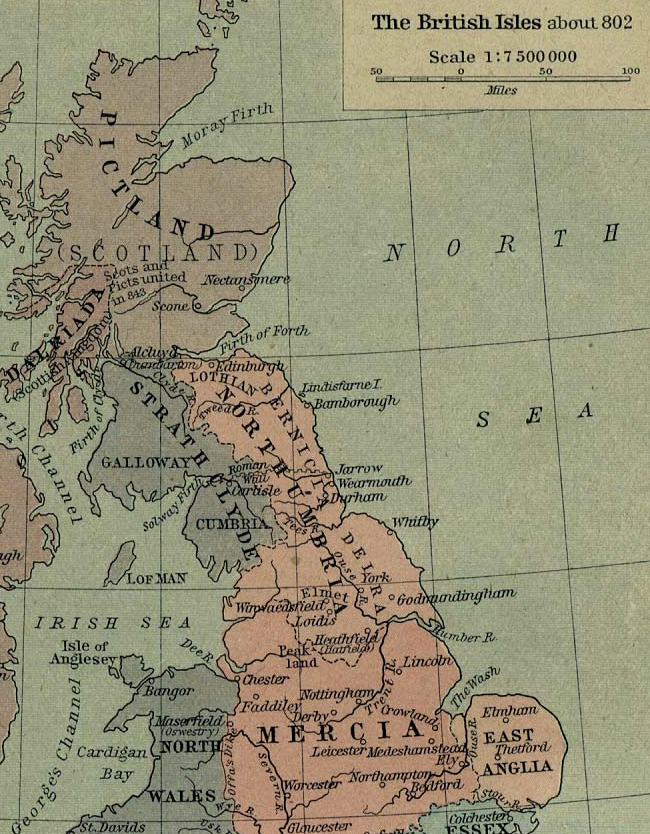
Escaping from Nurse, who, besides worn sheets, displayed for her reprobation two of Aubrey's shirts, with wrist-bands torn by careless mangling, Venetia fell into the clutches of the housekeeper. Mrs Gurnard's ostensible purpose was to remind her that now or never was the time for making bramble-jelly; her real object, arrived at only after much divagation, was to defend the new laundry-maid, her own niece, fom Nurse's accusations. Since these two elderly retainers had lived for some twenty-six years on terms of mutual jealousy, Venetia knew that the alleged shortcomings of the laundry-maid would inevitably lead to the recital of a number of other grievances against Nurse; after which Nurse, rendered suspicious by the length of her visit to the housekeeper's room, would pounce on her to discover by rigorous questioning what malicious lies had been told her; so, with an adroitness born of long practice, she swiftly brought the conversation back to bramble-jelly, diverting Mrs Gurnard's mind by a promise to bring her a basketful of blackberries that very day, and slipping away to her bedchamber before that redoubtable dame could recollect anymore of Nurse's iniquities.
Shedding the French cambric dress she was wearing, Venetia pulled out an old dimity from her wardrobe. It was rather outmoded, and its original blue had faded to an indetermnate gray, but it was quite good enough for blackberrying, and not even Nurse would cry out censoriously if it became stained. A rather stouter pair of shoes and a sunbonnet completed her toilet; and, armed with a large basket, she presently left the house, sped on her way by the intelligence, conveyed to her by Ribble, the butler, that Mr Denny, having ridden away to spaniel, bestowed on her by Aubrey, when he had discovered that besides being of an excitable disposition the pup was incurably gun-shy. As an escort to a lady on her solitary walks he was by no means ideal, for, his unfortunate weakness notwithstanding, he was much addicted to sport, and after impeding her progress for a few hundred yards by gambolling round her, jumping up at her with hysterical yelps, and in general enacting the rôle of a dog rarely released from his chain, he would dash off, deaf to all remonstrance, and reappear only at intervals, with his tongue hanging out, and an air of having snatched a moment from urgent private affairs to assure himself that all was well with her.
Like most country-bred girls of her generation, Venetia was an energetic walker; unlike most of her gently-born contemporaries she never scrupled to walk alone. It was a custom developed in her schoolroom days, when her object was to escape from her governess. An hour spent in strolling about the paths in the shrubbery was thought by Miss Poddemore to be sufficient exercise for any lady; and on the rare occasions when circumstance or persuasion induced her to set forth on the mile-long walk to the nearest village her decorous pace was as exasperating to her pupil as was her habit of beguiling the way with instructive discourse. Although not so highly accomplished as Miss Selina Trimmer, whom she had once met and ever afterwards venerated, she was well-educated. Unfortunately she possessed neither Miss Trimmer's force of character nor her ability to inspire her pupils with affection. By the time she was seventeen Venetia was so heartily bored by her that she marked her emergence from the schoolroom into young ladyhood by informing her father that since she was now grown-up and perfectly able to manage the household they could dispense with Miss Poddemore's services. From that date she had had no other chaperon than Nurse, but, as she pointed out to Lady Denny, since she neither went into society nor received guests at Undershaw it was hard to see what use a chaperon would be to her. Unable to say that there was an impropriety in a girl's living unchaperoned in her father's house, Lady Denny was obliged to abandon that argument, and to implore Venetia instead not to roam about the countryside unattended even by a maid. But Venetia had only laughed, and told her playfully that she was as bad as Miss Poddemore, who had never wearied of citing the example of Lady Harriet Cavendish (one of the pupils of the distinguished Miss Trimmer), who, when staying at Castle Douglas before her marriage, had never ventured beyond the gardens without her footman to attend her. Not being a duke's daughter she did not feel it incumbent on her to take Lady Harriet for her model. "Besides, ma'am, that must have been ten years ago at least! And to drag one of the maids with me, when she would rather be doing anything else in the world, I daresay, would destroy all my pleasure. No, no, I didn't rid myself of Miss Poddemore for that! Why, what should happen to me here, where everyone knows who I am?"
Lady Denny, sighing, had had to be content with a promise that her independent young protégée would never go unescorted into York, or Thirsk. When Sir Francis had died she had renewed her entreaties, but without much hope of being attended to. It distressed her that Venetia should say she had outgrown her girlhood, but she could not deny it: Venetia was then twenty-two, perilously near to being on the shelf.
"Without ever having been off it, Sir John -- though that's not precisely what I mean, only that it is a wicked shame, so beautiful as she is, and so full of liveliness, besides having the best disposition imaginable! For my part, I hold that aunt of hers pretty cheap! She never made a real push to persuade Sir Francis to let Venetia go to London for a season when the poor child first came out, and if she has urged her to go now that he's dead I have heard nothing of it! I believe her to be as selfish as her brother was, and if it were not for the expense, and our own girls to bring out -- for even if anything should come of that attachment between Clara and Conway, which I don't at all reckon on, I am determined that all five must and shall be presented at Court! -- well, as I say, if it were not for that I should be strongly tempted to take her to London myself, and I shouldn't wonder at it if she made a very respectable marriage, even though she isn't in the first blush of youth! Only, you may depend upon it she would refuse to leave Aubrey," she added in a despondent tone. "And soon it will be too late, if only she knew it!"
Venetia did know it, but since she could see no remedy while Conway remained obstinately abroad she continued to make the best of things. Lady Denny would have been astonished had she been allowed to know with what misgivings Venetia regarded the future.
For any female in her position it was bleak indeed, and seemed to offer her no choice between marriage with Edward Yardley or the life of an ageing, and probably unwanted, spinster in her brother's household. Mistress of an easy competence, it was convention and not dependence that would force her to remain at Undershaw. Single ladies did not live alone. Sisters, past the marriageable age, might do it; years and years ago Lady Eleanor Butler and her dear friend, Miss Sarah Ponsonby, had done it, but in the teeth of opposition. They had fled to a cottage somewhere in Wales, renouncing the world just as if they had been nuns; and since they were still living there and had never, so far as anyone knew, stirred from their retreat, it was to be inferred that they were content. But Venetia was no eccentric, and even had she possessed a bosom friend she would not for an instant have entertained the thought of setting up house with her: marriage to Edward would be preferable to such a ménage. And without indulging her fancy with girlish dreams of a noble and handsome suitor Venetia felt that marriage with another than Edward would be the most agreeable solution to her difficulties.
She had never been in love; and at five-and-twenty her expectations were not high. Her only acquaintance with romance lay between the covers of the books she had read; and if she had once awaited with confidence the arrival on her scene of a Sir Charles Grandison it had not been long before commonsense banished such optimism. In the days when she had now and then attended the Assemblies in York she had attracted a great deal of admiration, and more than one promising young gentleman, first struck by her beauty and then captivated by her frank manners and the charm of her smiling eyes, would have been very happy to have followed up a mere ballroom acquaintanceship. Unfortunately there was no possibility of following it up in the accepted mode, and although several susceptible gentlemen inveighed bitterly against the barbarity of a parent who would permit no visitor to enter his house none of them was so deeply heart-smitten after standing up with the lovely Miss Lanyon for one country-dance as to cast aside every canon of propriety (as well as to the horrid dread of making a great cake of himself) and ride out of York to Undershaw, either to hang about the gates of the Manor in the hope of achieving a clandestine meeting wth Venetia, or to force his way into the house.


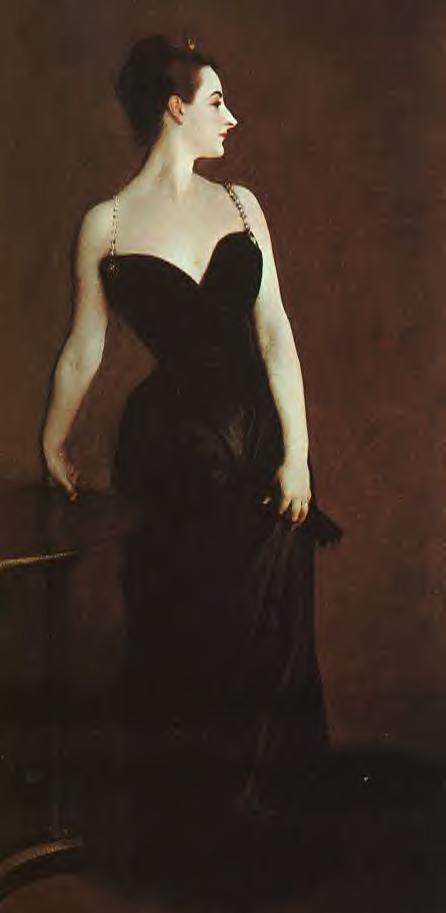
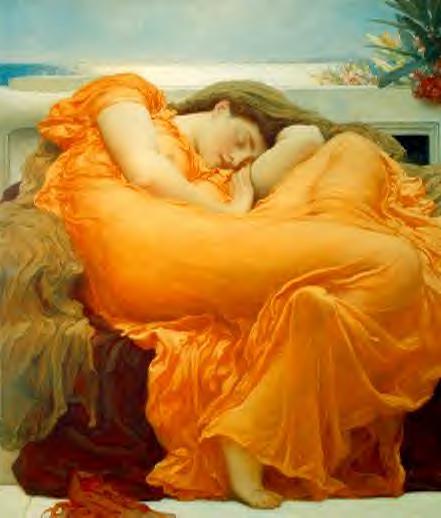
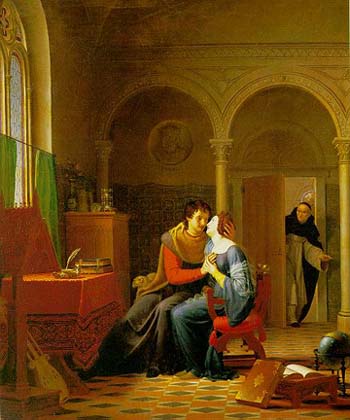


"Good! You haven't gone to bed yet," said Aubrey, suddenly re-entering the room. "I have had a most excellent notion!"
"This," said Damerel wrathfully, "is the second time you have walked in just as I am about to propose to your sister!"
"I should have thought you must have done that hours ago. In any event, this is something important. You can spend your honeymoon in Greece, and I'll come with you!"
Still standing within the circle of Damerel's arm, Venetia choked, and turned her face into his shoulder.
"Greece in the middle of the winter? We shall do no such thing!" said Damerel.
"But why be married so soon? If you were to settle on a date in the spring--"
"We have settled on a day in January -- if not December!"
"Oh!" said Aubrey, rather dashed. "Then I suppose it had better be Rome. It's a pity, because I'd prefer Greece. However, we can go there later on, and it's your honeymoon, after all, not mine. I daresay Venetia will like Rome, too."
"We must remember to ask her some time -- not that it signifies! Go to bed, you repulsive whelp!"
"Oh, you want to propose to Venetia, don't you? Very well -- though you needn't mind me, you know! Goodnight!"
He limped out, and Damerel strode to the door, and locked it. "And now, my love," he said, returning to Venetia, "for the fourth time...!"